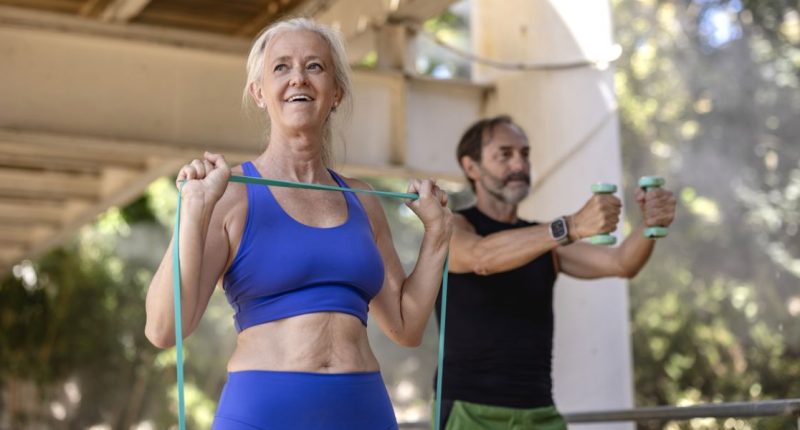The benefits of physical activity can be felt by the brain up to a day later, a new study has demonstrated.
Researchers from University College London have discovered that exercise can give our brains a boost right through to the day after.
Individuals who take part in moderate to vigorous exercise are more likely to do better on a memory test the following day compared to those who do not engage in physical activity, the study has reported.
- Diabetes-associated brain ageing prevented by healthy lifestyle
- Exercise can lower heart disease risk by reducing stress signalling in the brain
- Common brain degenerative disease may develop at younger age with no symptoms
The authors said: “Improvements could be achieved by something as simple as running up the stairs.”
Exercise stimulates the release of neurotransmitters such as norepinephrine and dopamine by increasing blood flow to the brain.
Experts now believe these mood-boosting hormones are present for up to 24 hours after exercise.
Throughout the eight-day trial, each participant underwent cognitive assessments and wore an activity tracker each day.
Researchers assessed how long each participant spent doing light physical activity and moderate or vigorous physical activity, as well as how often they spent being inactive.
In addition, they analysed each participant’s sleeping patterns, including their sleep duration and time spent in lighter sleep and deeper, slow-wave sleep.
The study has revealed that the participants who completed more moderate or vigorous physical activity were more likely to score better on the memory tests than those who are more inactive.
Additionally, the participants who slept for six hours or more and spent less time sitting had a better cognitive ability than those who sleep for less or sit down for longer periods of time, the research has identified.
- Lower blood pressure associated with 5 minutes of extra exercise a day
- Academics highlight approaches to lower blood sugar after exercise
- Wes Streeting: Exercise should not be replaced by weight loss jabs
Senior author Dr Mikaela Bloomberg said: “Our findings suggest that the short-term memory benefits of physical activity may last longer than previously thought, possibly to the next day instead of just the few hours after exercise. Getting more sleep, particularly deep sleep, seems to add to this memory improvement.
“Moderate or vigorous activity means anything that gets your heart rate up – this could be brisk walking, dancing or walking up a few flights of stairs. It doesn’t have to be structured exercise.”
Dr Bloomberg added: “This was a small study and so it needs to be replicated with a larger sample of participants before we can be certain about the results.”




